How Gulf Arab states are getting to grips with the energy transition challenge
DUBAI: Even before the Ukraine war began, one thing became clear quickly — that demand for conventional energy was not going away. Now, with Brent crude hovering around $107 per barrel and natural gas costing $6.95 per MMBtu amid heightened risks of supply disruptions, the impending fiscal windfall gives the Gulf Arab states extra resources to accelerate their transformation into “green economies.”
From ambitious “circular carbon economy” and net-zero emission pledges to investments in renewables and electric vehicle production, the past year has already witnessed the launch of numerous initiatives by these energy-exporting countries in response to calls for accelerated action for combating climate change.
At the same time, the Gulf region has made notable progress in the development of utility-scale solar and wind power, including phase three of the Mohammed bin Rashid solar project in Dubai completed last year and the inauguration of Saudi Arabia’s first wind farm at Dumat Al-Jandal.
“These are breakthrough moments which build momentum through knowledge and experience,” Francesco La Camera, director-general of the International Renewable Energy Agency, better known as IRENA, told Arab News.
“These low-cost renewables projects also open the door to the production of cost-competitive green hydrogen. We believe hydrogen will have a pivotal role to play in the decarbonization of the energy system.”
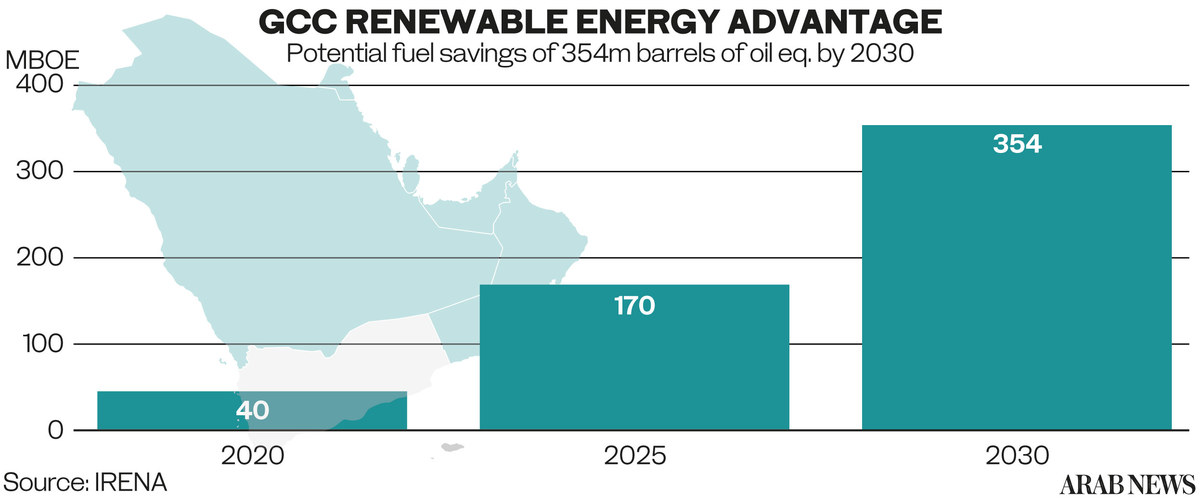
IRENA’s “World Energy Transitions Outlook” shows hydrogen could account for 12 percent of total final energy consumption globally by the middle of the century, up from today’s marginal levels.
“There are already clear signals of intent from the region to capture these market opportunities, which may prove to be a new and important aspect of the transition that the region can apply its hydrocarbon expertise and experience to,” La Camera said.
In the lead-up to the UN Climate Change Conference, COP26, in Glasgow last November, the UAE pledged to achieve net-zero carbon emissions by 2050 and to invest up to $160 billion in clean and renewable energy solutions.
The previous month, Saudi Arabia launched the Saudi Green and Middle East Green initiatives, committing the Kingdom to reach net-zero greenhouse-gas emissions by 2060 and to plant 10 billion trees over the coming decades, rehabilitate 8 million hectares of degraded land, and allocate new protected areas.
More recently, the Abu Dhabi National Oil Company and Abu Dhabi National Energy Company announced they would join the UAE’s state-owned holding company Mubadala as shareholders in the clean-energy company Masdar.
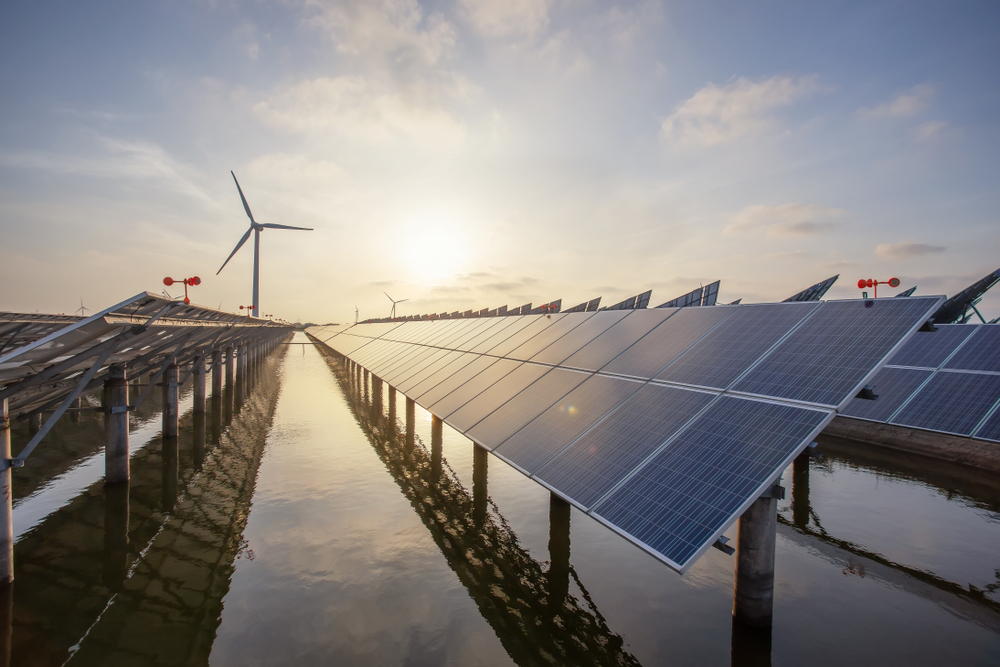
The partnership is designed to increase Masdar’s renewable energy capacity to 50 gigawatts by 2030 and to create a global clean energy powerhouse, with a focus on areas such as green hydrogen and renewables.
Similar developments are taking place in Saudi Arabia, including several projects in NEOM — the Kingdom’s smart city on the Red Sea coast — most notably the launch of Oxagon, the world’s largest floating industrial complex.
“The Oxagon project is a revolutionary idea looking at reshaping the way industries work at the gateway of the most popular shipping channel in the world, powered by 100 percent renewable energy, and requiring extensive levels of symbiosis between various industries,” Daniel Gribbin, corporate sustainability lead at WSP Middle East, told Arab News.
“The region’s drive to a more sustainable future is no secret. Levels of transparency and individual consumer behaviors, along with the vision of regional leaders, have accelerated the need to respond and act, so that they can have a seat at the global table.
“Demand for sustainability considerations from international investors has also been a propelling force for raising ESG awareness in the regional market, contributing toward valuation and reputation.”
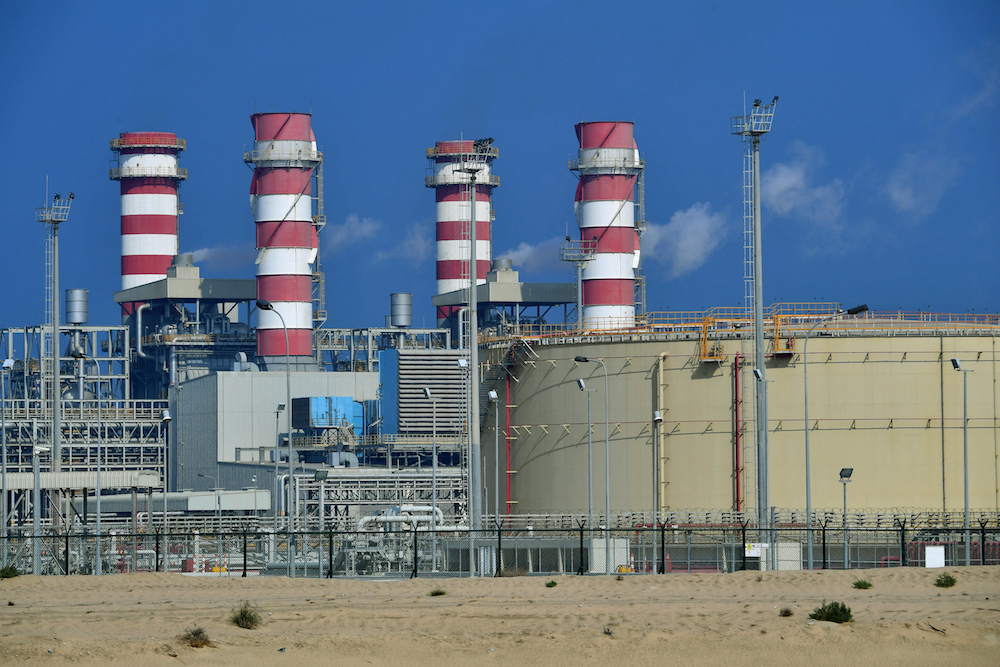
The past year has witnessed a sea change in the regional approach to climate action, according to Nawal Al-Hosany, the UAE’s permanent representative to IRENA.
At COP26, for instance, the UAE announced a number of landmark pledges and partnerships to raise ambitions, including the UAE-IRENA Energy Transition Accelerator Financing platform, which aims to raise $1 billion to accelerate renewable-energy transition in developing countries.
The UAE, through the Abu Dhabi Fund for Development, has already pledged $400 million in anchor funding to the platform.
“We also announced the Hydrogen Leadership Roadmap, which seeks to establish the country as a competitive global hydrogen exporter,” Al-Hosany told Arab News.
“Looking ahead to COP27 in Egypt, and COP28 in the UAE in 2023, the impetus for climate action will continue to create a ripple effect across the Middle East.”
INNUMBERS
* $120 Projected oil price per barrel if Russian oil flow is disrupted.
* $6.95 Current natural gas price per MMBtu.
La Camera describes the energy transition as an unstoppable megatrend, underpinned by innovation and motivated by the pursuit of long-term prosperity and climate action.
“GCC countries recognize this opportunity and are acting accordingly,” he told Arab News.
“It is also important to recognize that the Gulf region is positioning itself as a serious player in the global energy transition because its leaders understand their hydrocarbon resource wealth and vast clean energy potential presents them with an opportunity to build a resilient economy around knowledge, clean technologies and long-term energy leadership.”
Al-Hosany thinks hydrocarbons will continue to play an integral role in the energy system for decades to come, as managing an equitable and inclusive energy transition will be critical to turning the tide of climate change.
“We must rethink the balancing act of economic growth and sustainable development,” she said.
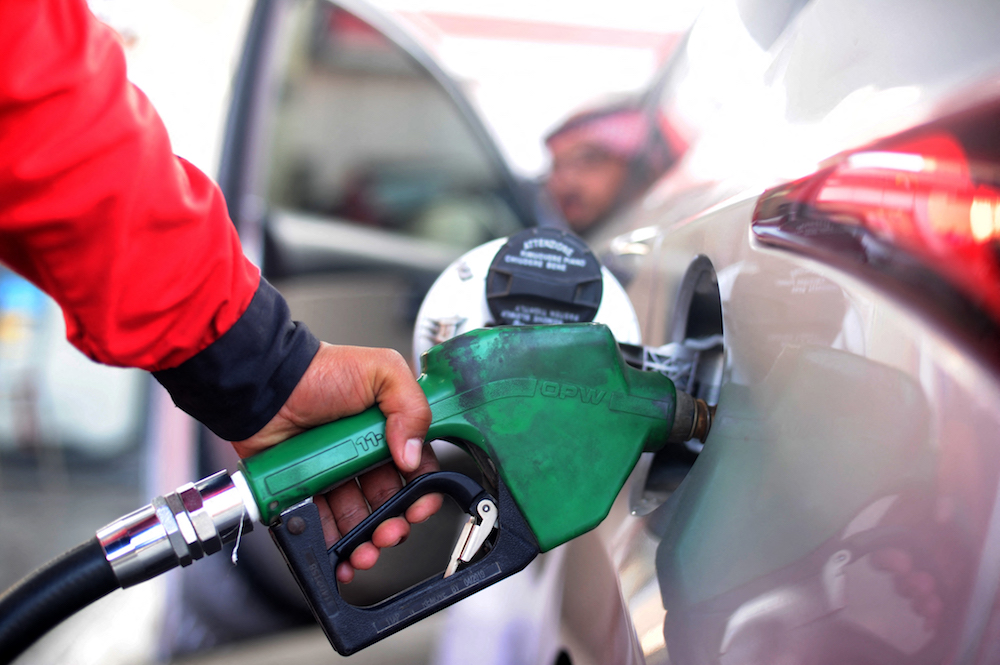
“But this transition will not happen overnight. We must shift toward an energy mix that involves renewable and clean energy sources. Though we must move toward the energy system of tomorrow, we cannot simply unplug from the energy system of today. It is not as simple as flicking a switch.”
From desertification to droughts, he Middle East is particularly vulnerable to the impact of climate change. And although every country has its own unique reasons to transition away from fossil fuels and toward renewables, the Gulf region has a lot to gain from the transition, according to La Camera, even if there are uncertainties about the long-term future of hydrocarbon exports.
“Exploiting its vast clean energy resources offers diversified growth and the creation of new jobs well into the 21st century,” he said. “Additionally, let us not forget the perilous situation this region may find itself in should global temperatures continue to rise unabated.”
La Camera said that the climate crisis “is likely to send regional average temperatures to around double the global average this century while increasing pressure on already scarce water supplies. This is a profound and very real threat that the region cannot solve alone, but it must be part of the solution.”
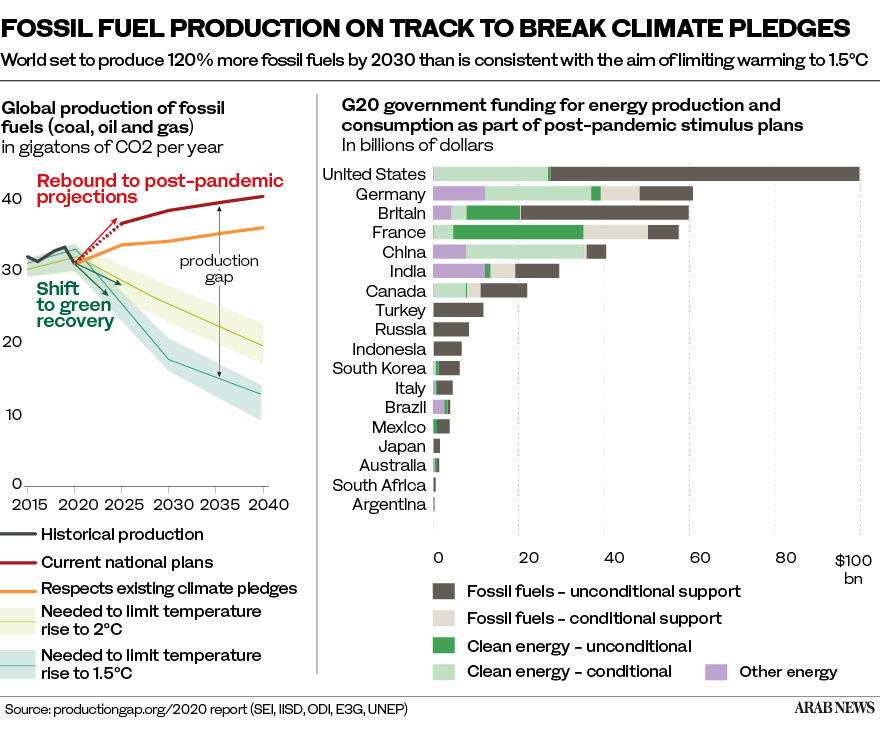
Gribbin believes there is no “silver bullet” to the challenge facing humanity. As such, policymakers, companies and individuals must work together to find shared solutions.
“Investment in the solutions to the challenges we face with climate change is not only good for humanity but is also smart business,” he said.
“Individual drivers and consumer behavior have changed, and the demand for ‘green’ and sustainable products is only going to increase. As a region that is extremely reliant on imports, particularly for food, and that has contributed to the proliferation of hydrocarbons, early investment is key in ensuring that we are part of the solution.”
By acting now, Gribbin said, the region will ensure it has both a thriving economy and an environment that can support a high quality of life for generations to come.
The invasion of Ukraine has the potential to accelerate the global trend toward renewables, with Europe expected to drastically reduce its reliance on Russian natural-gas supplies. If Gulf countries use their fiscal surpluses to fast-track the development of renewable-energy, hydrogen, ammonia-export and carbon-capture projects, they will emerge well prepared for the post-oil age.
—————
Twitter: @CalineMalek

How solar power is aiding energy transition in Saudi Arabia and other Arab Gulf statesGCC large energy players to contribute marginally to energy transition over the next 5 years: S&P Global



